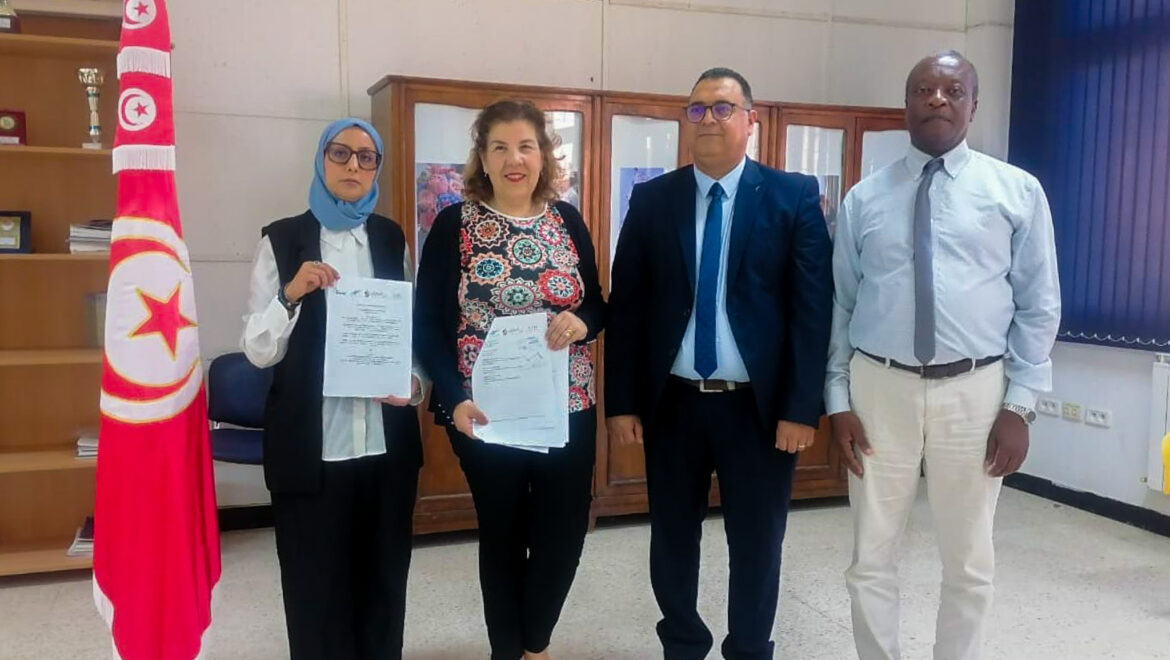En un acontecimiento histórico para los países africanos y MENA, Cap Bon (Túnez) ha sido recibido oficialmente como candidato al Premio de la Región Mundial de la Gastronomía 2028, reforzando aún más el compromiso global de IGCAT con la diversidad, la riqueza cultural y el desarrollo inclusivo a través de la gastronomía. El anuncio se confirmó formalmente durante la 12.ª Asamblea General Anual y el 36.º Foro Consultivo de la IGCAT, celebrados el 18 de junio de 2025, lo que supuso un hito importante para la Plataforma.
«El Cap Bon dio la bienvenida a mis antepasados sicilianos a principios del siglo pasado, ofreciéndoles algunos de los años más duros y alegres de sus vidas. Ahora, después de una década de vivir en el corazón de esta región, siento que es mi turno de retribuir, de honrar la tierra, la cultura y la cocina que dieron forma a la infancia de mi madre. Estoy orgulloso de haber iniciado la candidatura de Cap Bon como Región Mundial de la Gastronomía y profundamente alentado de ver a los sectores público y privado unir fuerzas, mano a mano, para hacer que Cap Bon brille en el escenario internacional». declaró la Sra. Lamia Temimi, cofundadora de Sawa Taste de Túnez
Como candidato, Cap Bon espera colaborar con la plataforma de regiones de todo el mundo para promover prácticas alimentarias sostenibles, fortalecer las economías locales y preservar las identidades culinarias a través de la innovación, la educación y el turismo responsable.
«La Autoridad Regional de Turismo de Nabeul-Hammamet se siente profundamente honrada por su participación y la firma oficial del protocolo de candidatura para Cap Bon como Región Mundial de la Gastronomía 2028, especialmente porque la Gobernación de Nabeul ofrece una combinación única de turismo cultural, experiencias costeras, artesanía y una rica gastronomía, lo que la convierte en uno de los destinos más atractivos de Túnez». declaró el Sr. Wahid Ben Fraj, Comisionado Regional de Turismo en Nabeul-Hammamet.
Y la presidenta de la ATPNE (Asociación Tunecina de Protección de la Naturaleza y del Medio Ambiente), la Sra. Imen Rabah, agregó: «Esta asociación celebra las tradiciones culinarias únicas, los ricos paisajes agrícolas y el vibrante patrimonio cultural de Korba y de toda la península. Este reconocimiento marca nuestro compromiso con la resiliencia cultural y la promoción de nuestro patrimonio regional».
Esta candidatura marca una visión audaz para el futuro del país, ofreciendo una plataforma para resaltar la rica biodiversidad, las formas tradicionales de alimentación y el diálogo intercultural de Cap Bon, posicionándolo como un pionero en África para el desarrollo gastronómico sostenible.
Acerca de las regiones mundiales/europeas de la gastronomía
Las Regiones de Gastronomía del Mundo y Europa, guiadas por el IGCAT, están trabajando juntas para fortalecer la seguridad alimentaria a través de la celebración de culturas alimentarias distintivas; crear empleo estimulando la creatividad y la innovación gastronómica; nutrir a niños y adultos a través de la educación culinaria y cultural; impulsar la sostenibilidad ambiental en los sectores del turismo, la hostelería y la agricultura; apoyar el equilibrio y las prácticas turísticas sostenibles; destacar y apoyar la experiencia de las comunidades rurales y urbanas, creando conexiones y compartiendo buenas prácticas; y contribuir a la salud y el bienestar de la comunidad.
Acerca de IGCAT
IGCAT tiene como objetivo empoderar a las comunidades locales mediante la creación de conciencia sobre la importancia de proteger y promover los alimentos, la cultura, las artes y los activos naturales regionales distintivos como parte de las estrategias de turismo y desarrollo sostenibles y equilibradas. Esto es esencial para salvaguardar nuestro planeta, la salud, el bienestar y las economías locales.
IGCAT es un instituto sin ánimo de lucro creado en 2012, que trabaja con consorcios regionales de partes interesadas en los campos de la gastronomía, la cultura, las artes y el turismo. Cuenta con la experiencia de una red mundial de expertos y trabaja en colaboración con organizaciones intergubernamentales especializadas.
IGCAT fundó el Premio de la Región Mundial/Europea de Gastronomía y es la secretaría oficial de las Plataformas de Regiones Mundiales/Europeas de Gastronomía. Además, el Instituto ha desarrollado el European Young Chef Award, el World Food Gift Challenge, el Top Websites for Foodie Travelers Award y el Food Film Menu internacional.
19 junio 2025
